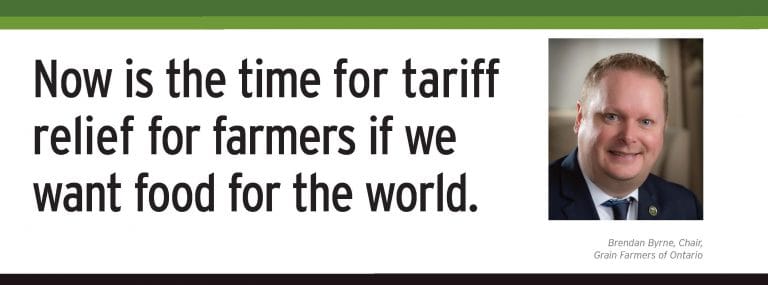Fertilizer Tariffs
Canadian Fertilizer Market Concerns
Fertilizer is estimated to be responsible for over half of the world’s food production. Its importance in feeding and providing critical nutrients for a growing global population cannot be overstated.
Today, the world is still contending with:
- Russia’s invasion of Ukraine possibly causing fertilizer exports to cease.
- Middle East tensions remaining high and could see drastic loss of all major fertilizer exports from the region.
- Major shipping lanes such as the Red Sea remain uncertain/high risk.
- Chinese government restricting exports of nitrogen and phosphate to maintain high domestic inventories and lower domestic values than the rest of the world.
See page 8 and 9 for the full list of short and long term recommendations.
The August 2025 StoneX fertilizer market report outlines persistent tightness and high prices in global nitrogen and phosphate markets, driven by disrupted trade flows following Russia’s 2022 invasion of Ukraine, reduced European production after the Nord Stream shutdown, Chinese export restrictions, and recent Middle East instability affecting shipments.
Fertilizer Response
An Open Letter from Eastern Canadian Grain Growers
Our farmers need your help. They are facing a 2023 planting and growing season filled with risks that they could not have foreseen – chief among them is access to fertilizer and increased costs that go far beyond any increased income.
See the statement below from Brendan Byrne, previous Chair of Grain Farmers of Ontario on fertilizer supply and pricing.

As an Ontario farmer, I believe there is no greater service I can provide than to produce safe, healthy food for Canada and markets across the globe – and do it in a way that helps sustain this world for future generations.
And frankly, I need help making sure I can continue to do this – especially from the federal government.
My family has been producing food on our farm in Essex County for four generations – each generation becoming more efficient, growing more food on the same land to support Canada’s food security and to export around the globe. This has created jobs for people in my community and across the province and helped grow Ontario’s economy.
This year, words like famine are being discussed. Russia’s horrific invasion of Ukraine has put the food supply in danger for many people worldwide. Russia and Ukraine supply 25 per cent of the world’s wheat. The European Union, Africa, and Asia depend on that wheat to feed their people, and now they have to find it somewhere else.
Farmers everywhere need to grow an abundant crop. That means feeding our plants and making them as healthy as possible. Farmers often add nutrients like nitrogen, phosphorous and potassium, and much of that product has traditionally come from Russia. This year, Ontario’s farmers are facing a critical supply shortage.
In 2021, before the Russian invasion of Ukraine, fertilizer prices were escalating because of shortages, and we were dealing with a 119 per cent increase in costs on some of our most important tools – so I will tell you, we were already using them sparingly. Now we are seeing additional increases of 35 – 45 per cent due to tariffs on the fertilizer shipments coming from Russia.
Tariffs are clearly a vital tool for the government to discourage people from supporting the Russian economy by purchasing Russian goods and services. Farmers understand that, and we support economic sanctions against Russia.
However, Ontario’s farmers need to produce as much as possible for the world. To do that, we need fertilizer. To get fertilizer, we will have to pay the extraordinary costs due to tariff pricing. And just as consumers are feeling the pinch from sky-high inflation, we are also bearing the increased cost of fuel, food, equipment, and other costs that continue to rise. But we also pay carbon tax on the fuel used to dry grains (wet grains can’t be processed into food for people), we pay retail prices for all of our business needs, and we sell at wholesale – and we can’t set our own prices to allow us to recoup costs.
We need help from the federal government in the form of some type of tariff relief. We thank them for allowing the fertilizer to come into Canada, but we can’t use it to grow food for Canada and the world if we simply cannot afford it. There needs to be a program that offsets these costs to farmers. As a country we must support the people and family businesses that produce food.
Ontario farmers will have to plan now for the coming years to ensure they can access the nutrients their crops need from new sources other than Russia or Belarus. And we are committed to looking for those sources.
Less than two per cent of Canadians grow food for ALL Canadians. We are asking the government to find ways to relieve the costs of these tariffs and help us be able to grow the abundant crop that Canada and the world will need this year and for the years to come.
Now is the time.

